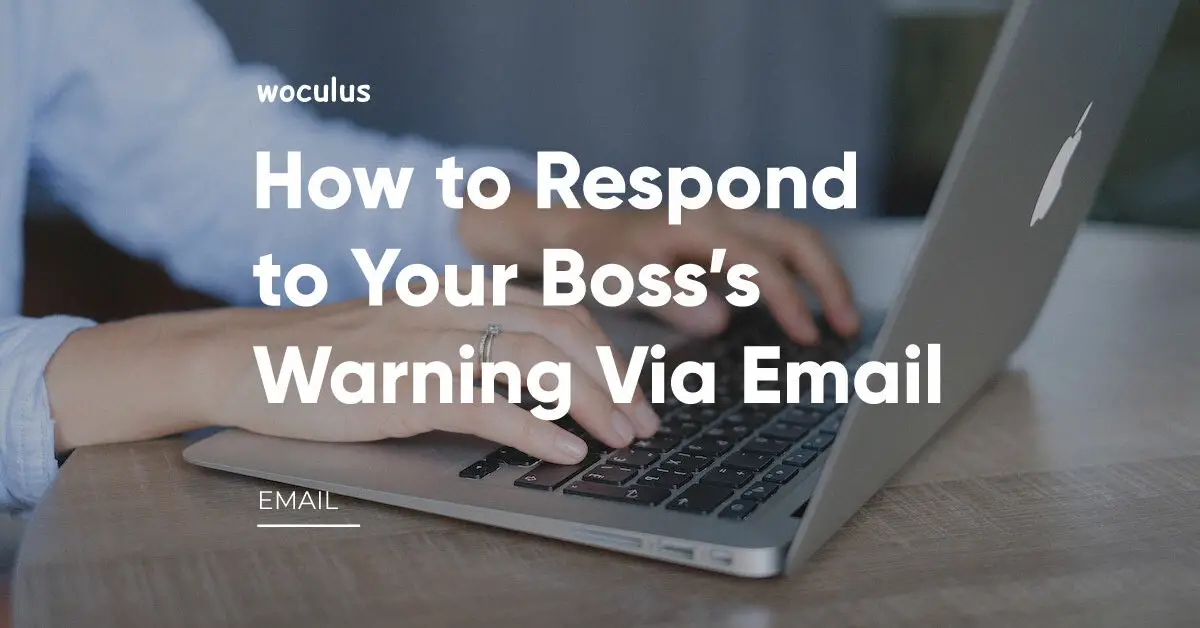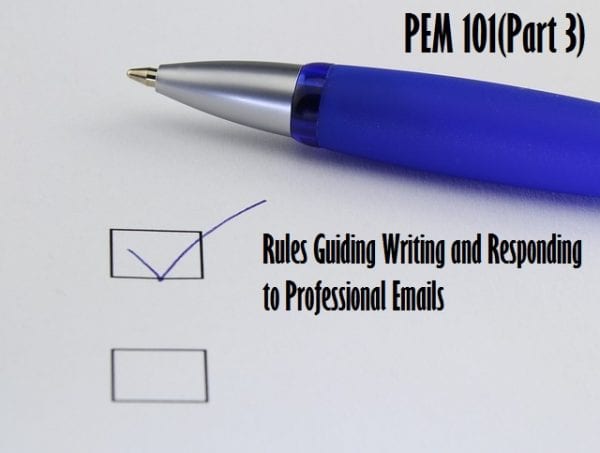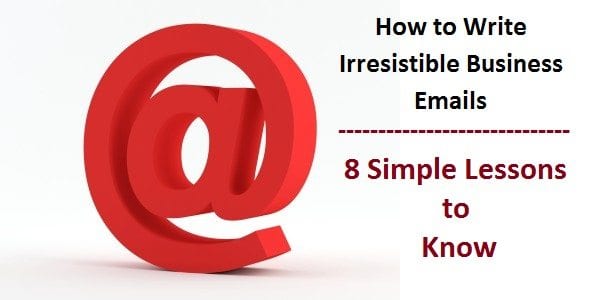If you work in a business or corporate environment, you need to learn how to respond to your boss’s warning. Because there is always that possibility of receiving a warning from your superior. A warning letter reply to boss explains to your boss that you’ve heeded their concerns and will make amends.
Whether such a warning was necessary or not, you need the requisite skill to respond to it. Knowing how to respond to your boss’s warning professionally has the power to save your job as well as boost your image in his or her eyes. You can leverage it instead of complaining or getting angry.
Learning the Lesson Before the Response
Instead of being angry with your boss for sending you a warning or query email, why not use it as an opportunity to learn. Before you respond to your boss’s warning, first take out time to think of what you can learn out of the situation to improve your performance at work. The performance of a manager is measured by the performance of the subordinates. Therefore, you are receiving a warning because your action(s) made your boss to look bad.
So, the big question that should be in your head is; how do I make my boss look and feel good?
This question must be answered before you respond to your boss’s warning via email. The answer to this vital question is amazingly simple. Prioritize your boss’s priorities! He sent you a warning because you failed to do what he expected of you, what he has prioritized. Whether you think your boss should prioritize such a thing or not is not the point.
Your action proved to your boss that you did not take his priorities serious. This is why you received a warning. If you fail, he fails as well. Therefore, before you respond to your boss’s warning, make sure you have a good grasp of the things you need to fix afterward. It is not just about sending an email to save your job, it is also, if not more so, about showing your boss that you take him seriously and that you are ready to take his priorities seriously too.
Maximizing the Opportunity Before the Response
Though it does not speak well of any employee to repeatedly receive warnings, however, you can covert this (or these) into something positive for yourself. Consider it this way, any time you get a warning, you learn something you must never do again. This helps you also understand your boss better, learn his likes and dislikes. You can predict your boss’s response to other situations and avoid future warnings.
So, by the time you are ready to respond to your boss’s warning, you are already a better employee. Yes, we agree that you do not need warnings from your boss to be a good employee or improve your performance. However, if you had to respond to your boss’s warning, then make sure it works to your advantage.
Following the Process before the Response
It is vital to understand the processes and protocols in your organization before you respond to your boss’s warning via email. While going through the points we will provide as a guide to respond to your boss’s warning, it is important that you bear in mind the uniqueness of your environment. Your company may already have a template for this or has certain outlined protocols. It is best you follow what your organization has put in place.
Again, if you report to a superior who receives loads of emails, you may want to also inform him verbally or by a phone call that you have responded to the warning email he has sent. In some firms, receiving a number of warnings may lead to penalties, therefore, it will also be in your interest to avoid these as much as possible.
Understanding the Warning before the Response
If you receive a warning from your direct supervisor and are asked to respond within 24 hours. The traditional questions of “what”, “why” and ‘how” should be asked. What is the warning about? Why was I warned? How was I warned or through what mode (email, phone call etc) was I warned? These will give you insight into how to respond to your boss’s warning appropriately.
Let us take for instance that your branch manager sent you a warning via email to explain why you were late to work that morning. The “what” here is that you were warned for being late to work. The “why” could be that you came very late that particular morning without permission or that you had been repeated late, hence your boss decided to act. The “how” is that it was sent via email.
How to Respond to Your Boss’s Warning Via Email
We will focus on using the email to respond to your boss’s warning. The email is fast becoming the best formal means of communication within and amongst organizations. Hence, it is vital to understand how to use it to achieve your desired result, especially in this case.
Clear Subject Line
Your subject line must be clear enough to reflect the message you are writing. If the warning was verbal or via a phone call, your email subject line should correctly show what you are responding to. Hit the “reply” button if it was an email, there is no need to create another subject line. Of course, if it was issued through a letter, you may have to respond likewise, except otherwise indicated.
Opening Greetings
Considering that the email you want to send is a formal one, your opening greeting should show this. There is no room at all for any pleasantries. When writing an email to respond to your boss’s warning simply use; “Dear Sir/Ma” or “Sir/Ma”. Avoid mentioning his name or position. That is, do not say “Dear Mr Pekins” or “Dear Branch Manager”. It is important you show the utmost respect for him. You need to bear in mind that your boss is likely in a bad mood, do not worsen it.
Main Body
This is the most important part of your email. The only logical answer to give when you respond to your boss’s warning is an apology. Any other response will paint you as an opponent and will likely make your situation worse. Remember that we noted earlier that your boss felt slighted, that was why you got a warning. Giving an explanation will not take this away. However, a sincere apology clearly reflected in your email can do this.
Understand that when you do not apologize, you are simply telling your boss that he is foolish and that the bases of his displeasure are unfounded. Basically, you are saying that your boss is dumb! He may take it personally and things may not turn out too well for you eventually. Yes, it is true that you may not be the one at fault in a situation for which you received a warning. Still apologize first, then present your point. We will deal with this aspect more comprehensively in another article.
After apologizing to your boss, you may present a case, which you must not justify. It is possible that things went beyond your control and you had to take the fall for it. Notwithstanding, do not make it into a reason (or an excuse) for what you did wrong in the sight of your boss. Mention this in passing, as something you should have handled better. Your boss will likely consider this since you have first tried to pacify his displeasure.
Email Closing
Repeat your apology and thank your boss in the closing section. This should be concise as the other aspects of the email. It shows professionalism.
Other Considerations
Ensure that the entire email is professional and free from grammatical and typographical errors. Ask one of your colleagues who understands your boss better to double-check what you have written. This will help you know if your email will achieve the desired result.
Response Letter for Poor Performance
Subject: Acknowledging Feedback and Commitment to Improvement Dear [Supervisor's Name], I hope this email finds you well. I wanted to take a moment to express my sincere gratitude for your valuable feedback during my performance review. While I understand the areas where I fell short, please be assured that I am fully committed to addressing them and improving my overall performance. Please know that I take this feedback seriously and consider it an opportunity for growth. I genuinely value my position within the company and want to contribute to its success. I am confident that with your support and guidance, I will be able to make significant progress and deliver the results expected of me. Thank you for your understanding and continued belief in my potential. I look forward to working closely with you to achieve our shared goals. Sincerely, [Your Name]
How to Respond to Disciplinary Letter
Dear [Recipient's Name], I am writing in response to the disciplinary letter I received on [Date]. I acknowledge and take full responsibility for the concerns raised. I deeply regret any disruption caused and assure you it was not intentional. I understand the importance of maintaining a professional work environment and adhering to company policies. To prevent recurrence, I am actively seeking additional training and resources for improvement. I apologize for any negative impact and am committed to regaining your trust. I remain dedicated to my position and the company's success. Thank you for addressing this matter. I appreciate your understanding and am open to any further guidance you may provide. Sincerely, [Your Name]
Sample Email 1: How to Respond to Your Boss’s Warning Via Email
Subject Line: Reasons for My Lateness to Work Today
Dear Sir, I hereby tender my unreserved apology for my lateness to work. I do not have any excuse for my action.
Sir, please permit me to bring to your notice that a major road leading to my home is under construction, and traffic situations along my route could be unpredictable. I do not present these factors as excuses, instead, I will plan my time better.
Please accept my sincere apologies once again.
Thank you sir.
Yours faithfully,
Charles Greene
Marketing Officer
Sample Email 2: How to Respond to Your Boss’s Warning Via Email
Subject Line (Reply Button Hit): Re: Warning: Explain the Non-Payment of Vendors
Dear Ma,
I am deeply sorry for the delay in paying our vendors.
Please permit me to mention that all of them except one, presented their account details late. We had sent them emails to present these two weeks ago, however, only one of them, Chicken and Fries Kitchen, sent in theirs. Others sent theirs within the last three days, despite repeated reminders via email and phone calls. I presented all the bank details to the accounting unit yesterday. ideally, I should have notified you of these delays. Kindly accept my apologies for not doing so.
Earlier, I forwarded the emails and reminders sent to the respective vendors.
Thank you ma.
Yours Sincerely,
Monica Woods,
Customer Service
Check Out More Templates and Samples for Responding To Your Boss’s Warning Via Email







